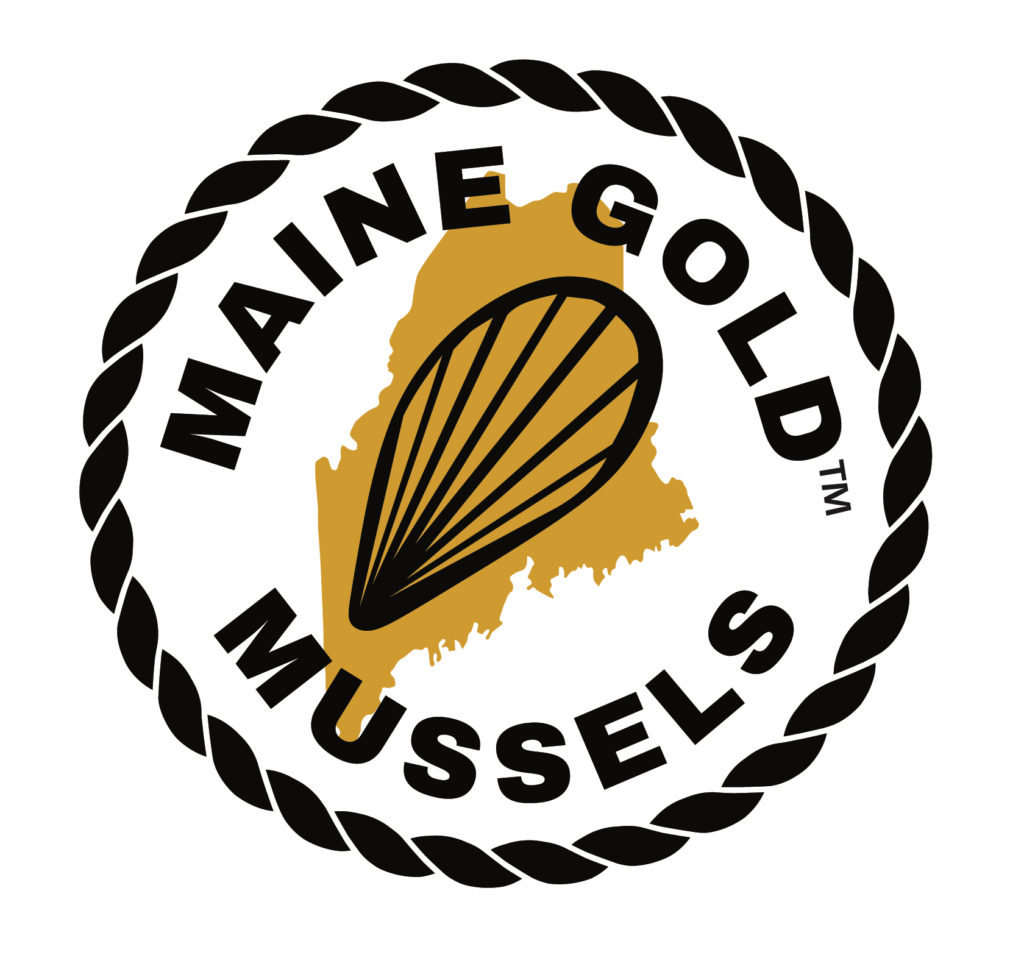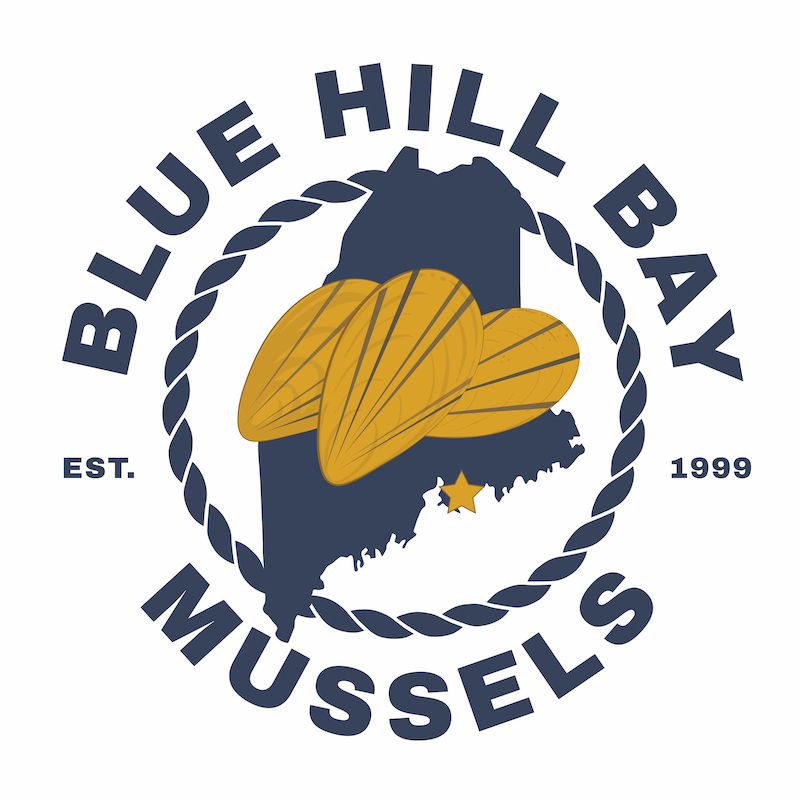Meet the Farmer
Evan Young owns Blue Hill Bay Mussels, an ocean farm that produces annually up to 300,000 pounds of rope-grown, eastern blue mussels. Like all Maine mussel farms, Evan’s depended on wild mussel seed, which begins as microscopic, free-swimming larvae, settling onto his farm’s ropes; yet that natural settlement had become more and more unreliable.
Evan wanted to find out if a hatchery could provide cultured seed to minimize risk to his business. He was also interested in whether hatchery mussels could be produced using adults with a rare golden-striped shell.


Evan called the Downeast Institute (DEI), a nonprofit marine research organization in Beals, Maine that specializes in shellfish biology and husbandry, with a long history of collaborating with shellfish harvesters and growers.
In 2012, DEI began to develop economical hatchery methods and technology to rear commercial numbers of mussel larvae and juveniles. Working with Evan and his crew, ideas were tested and refined, both in the hatchery and on the mussel farm, resulting in the discovery of methods to maximize production, making the farm more resilient.

MAINE GOLD™ MUSSELS
Shell colors of blue mussels vary naturally. Maine Gold™ mussels were created at DEI by selectively breeding wild, remarkable, and rare, gold-striped adult mussels. All adults now used to produce Maine Gold™ mussels are hatchery-reared, and 90% of their offspring will be gold.
Maine Gold™ mussels have a striking, unique appearance, growing to market size in as few as 14 months in the cold, clean waters along our coast. Fast growth makes their shells lighter than wild, slower growing mussels, resulting in higher meat yields and better value. No seed is collected from the wild to produce these mussels, helping sustain the wild fishery, as well as Maine’s mussel farms.

The research, technology transfer, and commercialization of seeded ropes and Maine Gold® mussels have been funded by the National Science Foundation, NOAA’s Saltonstall-Kennedy and Sea Grant programs, as well as the Maine Technology Institute.
